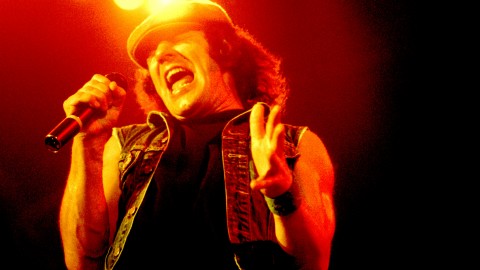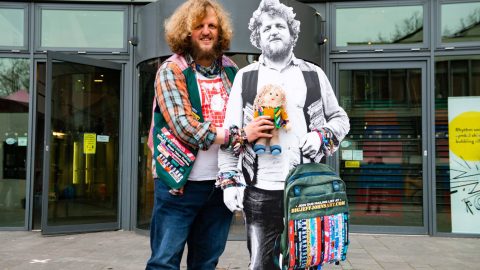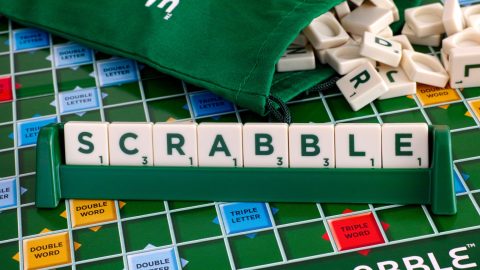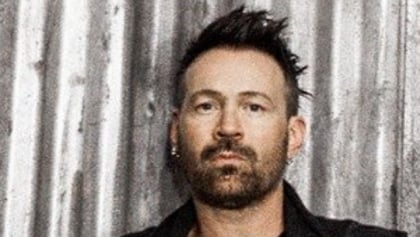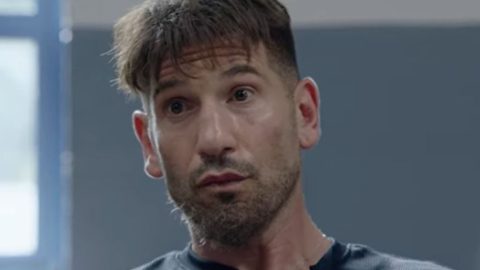
Strange days indeed. December 8 is always a sombre date in the rock fan’s diary, and particularly so in 2020, when it marks the 40th anniversary of John Lennon’s senseless assassination. It’s a day to reflect on the music we lost outside the Dakota Building that cold New York winter day, but also appreciate once again the music Lennon left behind.
Beyond his culture-shaping work with The Beatles, Lennon’s solo albums ran the full gamut of confessional emotion, expressed in styles veering from avant-garde experimentalism to bliss-pop, political diatribe, doe-eyed odes of familial devotion and primal screams of existential pain.
They might have been virtually inseparable (bar that hazy, 18-month ‘lost weekend’ ’73-‘4), but in trying to get a clearer and fairer streaming-age picture of Lennon’s solo studio work, we’ve discounted Yoko-penned contributions where possible and ranked the records on the quality of John’s songcraft alone. Like the man almost said, give ‘Milk And Honey’ a chance…
‘Unfinished Music No. 2: Life With The Lions’ (1969)
“This is a piece called ‘Cambridge, 1969’. [Pause] AAAAAAAAAAGGGHHHHHH!” John and Yoko intended their ‘Unfinished Music’ trilogy to act as a sonic representation of their life together, rendered in avant-garde, improvisational tonal pieces inspired by Fluxus art, with the listener intended to largely imagine the music for themselves. The second instalment is both challenging and disturbing: the first 26:31 consists of Yoko caterwauling over Lennon’s guitar feedback live in Cambridge, while later tracks, recorded on cassette at Yoko’s bedside in Queen Charlotte’s Hospital, include recordings of their unborn child’s palpitations as he miscarried. They sing their own press cuttings, make phone calls and fiddle at length with radio dials. The back sleeve, tellingly, came with the quote “No comment” from Beatles producer George Martin.
‘Unfinished Music No. 3: Wedding Album’ (1969)
From the hospital ward to the marital boudoir: the sound of John and Yoko whispering, panting and screaming each other’s names over the sound of their heartbeats for 20 minutes on the first of ‘Wedding Album’s two 20-minute tracks ‘John & Yoko’ was presumably intended to make the listener’s own sex life seem depressingly un-spiritual, right down to the post-coital apples. This celebration of their 1969 marriage then concluded with ‘Amsterdam’, recorded during their bed-in for peace at the Amsterdam Hilton, at least had a tune or two. Lennon performs blues improvs and an a cappella take on ‘Good Night’ and Yoko warbles for peace alongside illuminating snippets of interviews and conversation from under the covers.
‘Unfinished Music No 1: Two Virgins’ (1968)
The musical equivalent of being the spare wheel in as threesome, ‘Two Virgins’ is the sound of John and Yoko flirting with improvised avant-garde sound effects, piano bashings, trills, twangles and wails when John’s wife Cynthia was away for the night, before shagging for the first time at dawn. It’s the sort of thing that’d have you running a mile from a Hinge date, but as the consummation of a music-quaking love affair it’s notable as a historical document of their legendary sonic-sexual tension.
‘Rock ’N’ Roll’ (1975)
As contractual obligations go, at least Lennon put his all into ‘Rock ‘N’ Roll’, which was recorded in order to assuage a legal case over his use of a line too from Chuck Berry’s ‘You Can’t Catch Me’ in ‘Come Together’ (as part of the out-of-court settlement, Lennon was required to record three old songs owned by publisher Morris Levy). John took to the idea of an album of the golden age rock’n’roll songs that had inspired him as a teenager (‘Be-Bop-A-Lula’, ‘Sweet Little Sixteen’, ‘Peggy Sue’ and so forth) with enthusiasm – and many, many drunken LA mates. The results were raw, energised and authentically ‘50s. A sliver of The Cavern in ‘70s Los Angeles.
‘Milk And Honey’ (1984)
Pieced together posthumously from demos and works-in-progress recorded for 1980’s ‘Double Fantasy’ (and similarly interspersed with Yoko songs), ‘Milk And Honey’ is often dismissed as little more than a curio, but the crux of a Lennon song was always where the magic happened, and his six tracks here were no exceptions. ‘I’m Stepping Out’ and ‘I Don’t Wanna Face It’ are neat little rockers that tease what Lennon might have done within the 1980s’ vein of glossy retro rock’n’roll. ‘Borrowed Time’ was his very own ‘Ob-La-Di…’ and the exuberant ‘Nobody Told Me’ is amongst his finest solo works, full of life four years after his death.
‘Some Time In New York City’ (1972)
Enough lounging around hoping for the world to change; 1972’s ‘Some Time In New York City’ found John and Yoko bawling radical politics in your face, whether railing against drug laws over frenzied slide guitar on ‘John Sinclair’, addressing the Bloody Sunday massacre of that year on ‘Sunday Bloody Sunday’ or championing feminism in controversial, lucky-there-wasn’t-Twitter fashion on ‘Woman Is The N***** Of The World’. Funk, ragged rock’n’roll, trad folk and country, Yoko’s first forefront appearances on traditional Lennon songs and a bunch of rumbunctious, tacked-on live jams made for an unconventional follow-up to ‘Imagine’, but one not without plenty of retrospective charm: the stirring ‘Angela’, for example, was one of his greatest solo ballads.
‘Walls And Bridges’ (1974)
They were on a break. Hence no Yoko on John’s ‘lost weekend’ album, recorded between LA drinking sessions with Ringo and Harry Nilsson and drenched in a lustrous self-pity on the likes of ‘Nobody Loves You (When You’re Down And Out)’, ‘Scared’ and ‘Old Dirt Road’. What could have been Lennon’s downbeat, bluesy, plush and unhinged woe-is-me record was lightened dramatically, though, by raucous roadhouse funk moments such as ‘What You Got’ and ‘Beef Jerky’. Two of his best singles – the Elton-esque ‘Whatever Gets You Thru The Night’ and his true solo masterpiece ‘#9 Dream’ gives the album the hallucinogenic feel that an 18-month bender deserves. Both gutter and stars in one blurred vista.
‘Double Fantasy’ (1980)
If his mid-’70s albums came steeped in strife, there was something redemptive and freeing about the settled serenities of Lennon’s 1980 comeback album, as if five years of house husbandry had done him the world of good. ‘(Just Like) Starting Over’ wasn’t just a literal rebirth but a metaphorical one too, bringing an ELO gloss to the sort of classic drive-in croon tune he’d been emulating with the Moondogs back in ’59. And while the slicker funk-blues of ‘Cleanup Time’ and ‘I’m Losing You’ didn’t seem to suit him quite as well as that on ‘How Do You Sleep?’ or ‘Glass Onion’, ‘Watching The Wheels’ and ‘Woman’ hinted at a wondrous second wind we’d sadly never get to bask in.
‘Mind Games’ (1973)
Or ‘Imagine: Resurrection’. The politicising of ‘Some Time In New York City’ had alienated fans and brought him to the attention of the FBI – cue problems with his US immigration process – so Lennon returned to more straightforward emotional songwriting, penning reggae emancipation anthems (“Bring On The Lucie (Freda Peeple)’ and exploring his growing marital fractures on jazzy music hall update ‘One Day (At A Time)’ and the title track. There’s a Beatledelic vivacity to ‘I Know (I Know)’ and the glam-friendly ‘Only People’ that Lennon would rarely capture on record again.
‘Imagine’ (1971)
Sure, the title track has been held up as the very epitome of mawkish hippy idealising for decades, but advocating an end to religion, consumerism, international borders and hatred in a plaintive piano ballad even grannies could love was still pretty radical (and yet to be overplayed) in 1971, so let’s appreciate its statement over its orchestrated sentimentality here. And, beyond it, in terms of sheer songwriting punch, ‘Imagine’ was arguably Lennon’s strongest solo collection. ‘Gimme Some Truth’ was his catchiest political soapbox rant, ‘Oh My Love’ and ‘Jealous Guy’ his most weightless ballads and proto-diss track ‘How Do You Sleep?’ his most vicious in-song annihilation of Paul. And did ‘I Don’t Wanna Be A Soldier, Mama, I Don’t Wanna Die’ invent trip-hop 20 years early?
‘John Lennon/Plastic Ono Band’ (1970)
He might have bared all on the cover of ‘Two Virgins’, but Lennon’s first solo album ‘proper’ was undoubtedly his most naked statement. The result of Arthur Janov’s primal scream therapy making John face his issues head-on, ‘Plastic Ono Band’ is one of the most brutally honest albums ever made.
‘Mother’ dissects Lennon’s deepest feelings towards his mother’s death and his father’s absence so starkly it’s almost painful to listen to. ‘God’ dismantles humanity’s need for cultural and spiritual idols with a steely precision. ‘Isolation’ is a cry for help from the mansion balcony, while ‘Working Class Hero’ and ‘I Found Out’ are both scathing attacks on the engrained structures of society and any simpering hippy dreams of shattering them. It’s up there with Altamont as a ’60s-ending event, but also the most beautifully savage albums in history.
The post Every John Lennon solo album ranked in order of greatness appeared first on NME | Music, Film, TV, Gaming & Pop Culture News.

